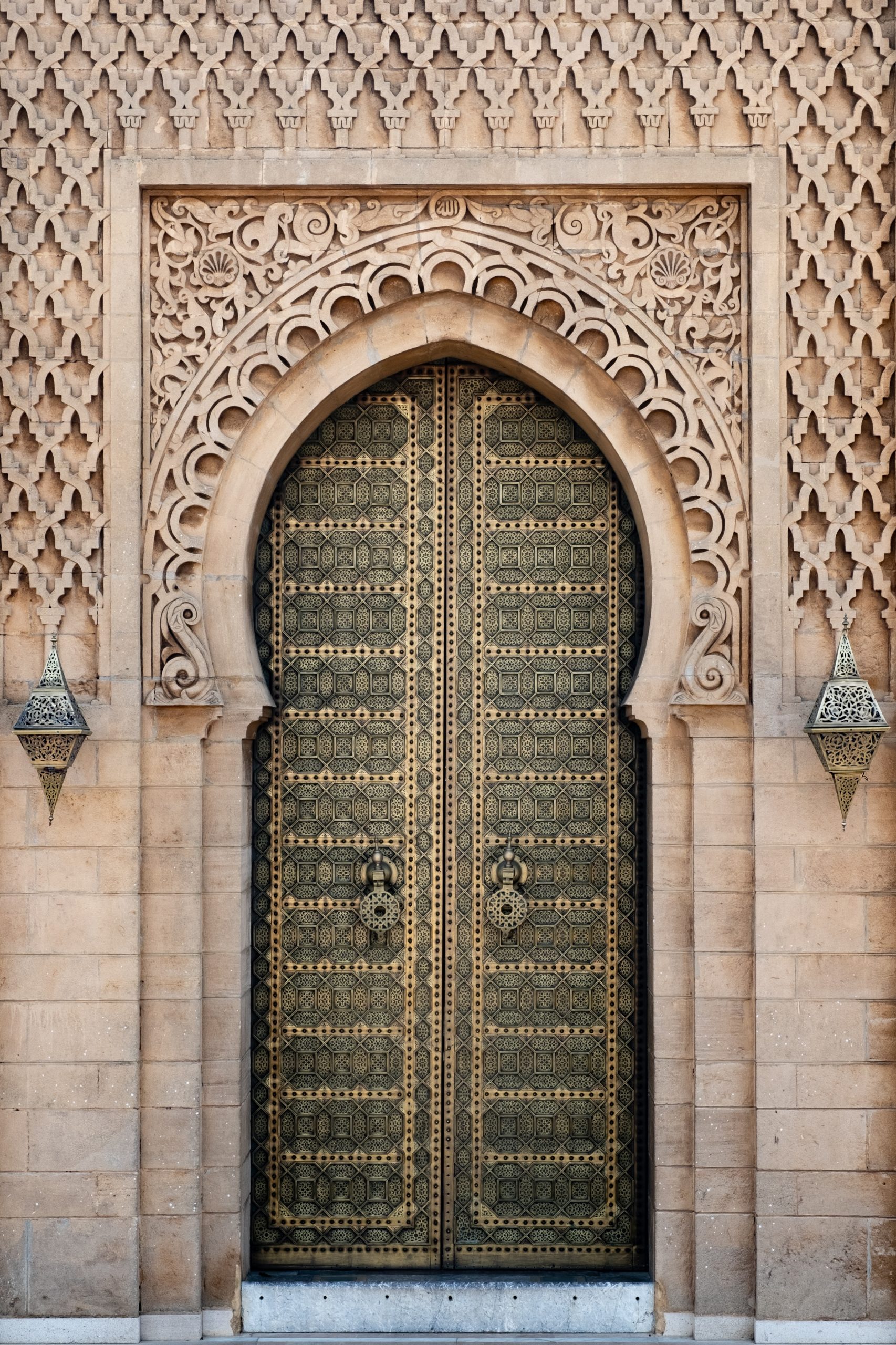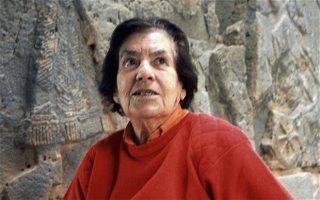“The Spotlight” brings to light the stories of Muslim women of the past and present. In this instalment, We unveil the scholarly and leadership legacy of Umm Al-Darda, a 7th Century Jurist and Islamic Scholar.
“I’ve tried to worship Allah in every way, but I’ve never found a better one than sitting, debating other scholars.” – Umm Al-Darda
As is well known, compared to the history recorded about the male companions of the Prophet (PBUH), only little biographical information about the female companions is available to us. This historical imbalance is even more pronounced for female successors who came generations after the Prophet (PBUH). Notions that Islam is inherently oppressive to women are contradicted not only by an in-depth analysis of the Qur’ān but also by extensive evidence that demonstrates that women, during the formative years of Islam, enjoyed a high standing and were included in every aspect of life.
Against the backdrop of true Islamic principles, centuries of misogynism have been internalised and turned into reality, making Muslims themselves believe that Islam is responsible for female subjugation and gender injustice. In a time where some women are confined to their homes while others are vying for political positions, we need only remind ourselves that our problems are man-made.
From the time of Prophet Muhammad, there were thousands of women scholars and jurists who exercised the same authority as men and taught male and female disciples, including judges and caliphs. Women who lived during the time of the Prophet, whose life example is seen by Muslims as the most perfect manifestation of the spirit of the Qur’ān, knew that they had full rights and used to go to the mosque, pray amongst the men, pray in close proximity to the Prophet, fight in battles, teach men and women, move about freely, and interrupt scholars as they spoke to ask questions for which they demanded answers.
“For centuries, women traveled intensively, fulfilling their religious duty of seeking knowledge and attending prestigious mosques and madrassas throughout the Islamic world. The fact that over nine thousand women scholars were found by chance and are mentioned in writing means that there were countless more. It is commonly known that men did not want the names of their wives or daughters published.”
– Shaykh Mohammad Akram Nadwi
The story of Umm Al-Darda as presented in many historical narrations is quite invigourating. According to research, Umm Al-Darda was an orphan child under the sponsorship of Abu Darda. Her real name was Hujayma bint Ḥuyayy. As a child, she used to sit with male scholars in the mosque, praying in men’s rows and studying the Quran with them. She prayed with men in the Masjid, until she reached maturity at which point she started praying with women. She became a teacher of hadith and fiqh and lectured in the men’s section.
She met and transmitted hadith from Aisha (RA), the beloved wife of Prophet Muhammad (PBUH) and other companions of the Prophet including, Salman al-Farsi. After living for most of her life in Medina, she moved to Damascus where she taught hundreds of students, both male and female. Many of them went on to become respected scholars in their own right. One of her students Abd al-Malik ibn Marwan would eventually become the Caliph.
It is reported that one day, one of her students asked her about the stress of having many students: “Have we wearied you?” He said. “You? weary me?” she answered. “I have sought worship in everything. I did not find anything more relieving to me than sitting with scholars and exchanging knowledge with them.“
Umm Al-Darda was learned in the sciences of hadith. Imam Bukhari referred to her as an authority in Sahih al Bukhari when he stated that: “Umm Al-Darda … was an expert theologian.” Ibn Abdul Barr calls her “an excellent scholar among women, and a woman intellectual, being at the same time extremely religious and pious.”
Umm Al-Darda was held by Iyas ibn Mu`awiyah, as an important scholar of hadith of the time and a judge of undisputed ability and merit, to be superior to all the other hadith scholars of the period, including the celebrated masters of hadith like Al-Hasan Al-Basri and Ibn Sirin.
She was also pious, modest and unpretentious both in her daily life and teaching. She asked for no fee for delivering knowledge and was known to be very charitable. In Ibn ‘Asakir ‘s Ta’rikh Madin Dimashq, Tarajim al-Nisa, it was written that:
“I saw Umm al-Darda in Jerusalem sitting among poor women. A man came and distributed some money among them. He gave Umm Al-Darda a fals (a copper). She said to her servant: Buy camel meat with it. Is not that money sadaqah? Umm al-Darda said: it came to us unasked.
Umm Al-Darda taught in both Damascus, in the great Umayyad Mosque, and Jerusalem. The powerful Caliph Abdul Malik b. Marwan, who ruled an empire stretching from Spain to India, had a teaching license from Abdullah b. Umar, may Allah be pleased with him, who was considered the greatest jurist of his time in Medina. When ‘Abdullah reached old age, the people asked him: “Who should we seek religious verdicts from after you?” He replied: “Marwan has a son (Abdul Malik), who is a jurist so ask him.” Hence, Abdul Malik was endorsed by Abdullah, may Allah be pleased with him.
Yet even Abdul Malik b. Marwah would attend the classes of Umm Al-Darda and he would never feel ashamed of learning from her. Furthermore, he would humbly serve her. It has been recorded that when Umm Darda was teaching she would lean on the shoulder of Abdul Malik b. Marwah, due to her being advanced years, to go to mosque for Salat. He would help her return to her place of teaching after the prayer. The fact that these women taught men who were themselves regarded as great scholars indicates the respect and status they had attained.
Ahmad ibn Hanbal related from Zayd ibn Aslam that he said:
Abd al-Malik used to send an invitation to Umm Darda and she would spend as her guest, and he would ask her questions about the Prophet peace be upon him. He said, ‘He arose one night and called his maidservant but she came slowly and he cursed her, so she said, “Do not curse, for indeed Abud-Darda related to me that he heard the Messenger of Allah peace be upon him say, “Those who curse will not be witnesses or interceders on the Day of Judgement.”
It is also reported that once someone came to her and said, “O Umm al-Darda’! Somebody has said something (bad) about you to ‘Abd al-Malik ibn Marwan!” She replied, – “If we have been accused of what is not within us, then how many times have we been praised for what is also not within us.”
Dr Umar Farooq Abdallah in his paper titled “Living Islam with Purpose.” stated that “The disempowerment of Muslim women is a major reason for the retrogression of many Muslim societies. Muslim women excelled as leaders, poets, scholars, philanthropists, spiritual guides, and in other capacities. Renewal of their legacy is essential for the future of Muslim communities everywhere.” Therefore, in light of these wise words, spotlighting the stories of Muslim women of the past and present is our duty in the 21st century.
Excerpted From:
- Umm Darda (May Allah be pleased with her) (islamictextinstitute.co.za)
- Women Scholars in Islam (part 1 of 2) – The Religion of Islam (islamreligion.com)
- Umm al-Darda as-Sughra – Wikipedia
Related Reads:
- Al-Khansa: A Mistress of Ancient Arab Poetry • The Muslim Women Times
- Zainab bint Al-Kamāl: The Influential Scholar behind Scholars • The Muslim Women Times
- Unsealing the Door – Peeping Into the Life of Sitt Al- Wuzara • The Muslim Women Times




